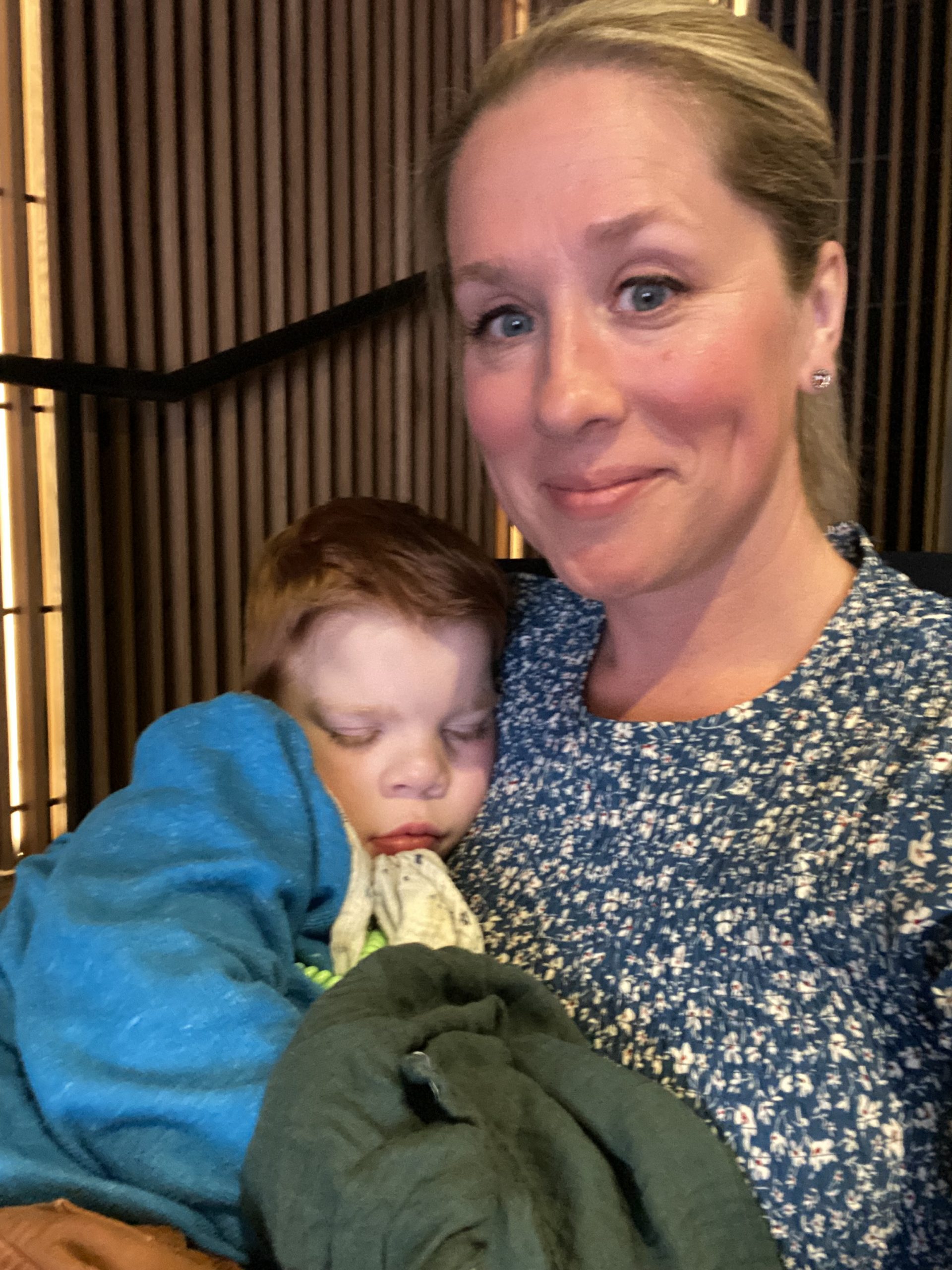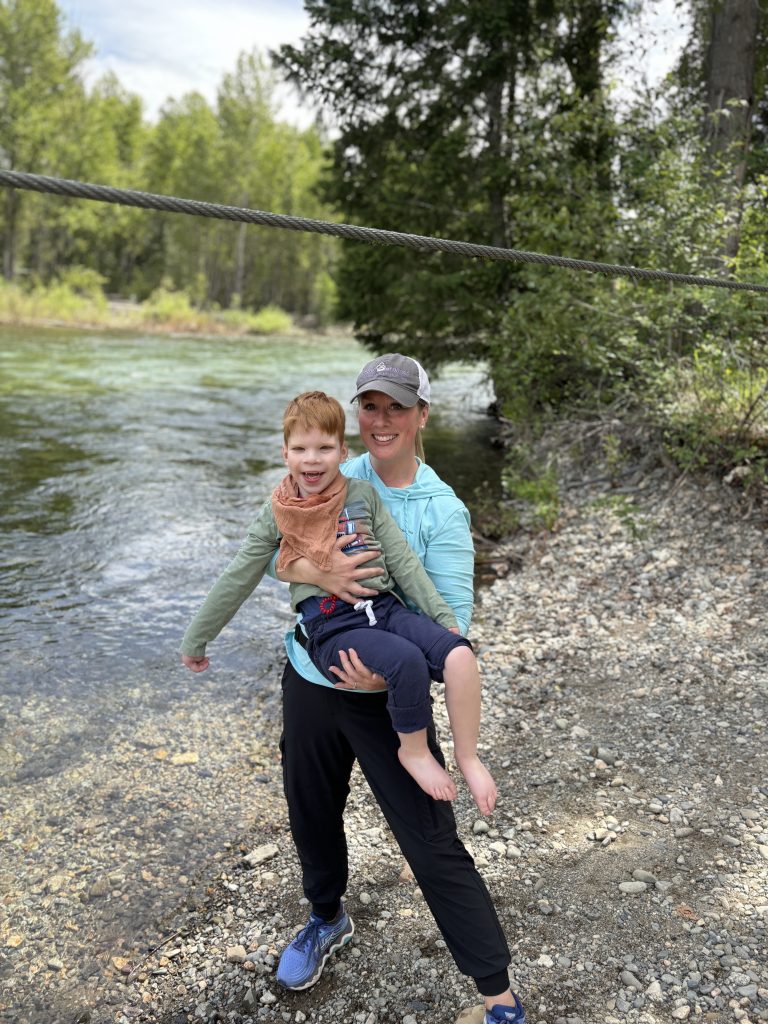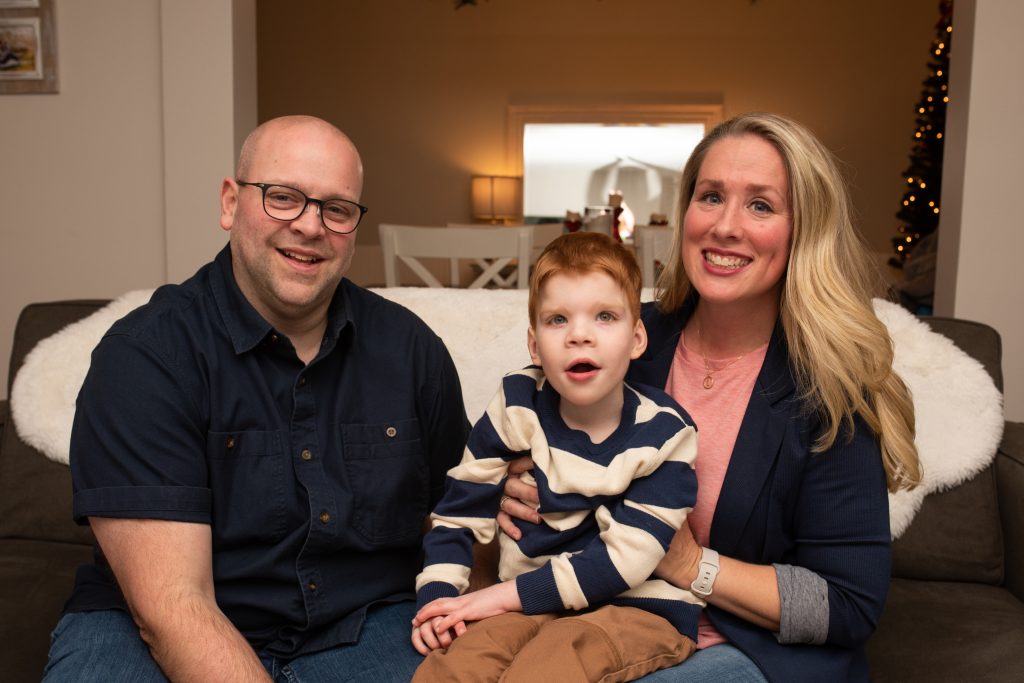11/25/2024
·Enable high contrast reading
Searching for Sleep

 My heart is racing. How can my heart be racing? I am just lying in bed; there is no emergency. Our son is healthy and asleep. I breathe in and out slowly to try to regulate my nervous system. It is September, the month of our son’s birthday. The leaves start to change and days with precipitation are more frequent. The smell of rain is now something that I associate with the hospital where my son spent his first 103 days. This September it will be eight years since our son was born. Eight years of living in fight or flight mode. Eight years of advocating for his worth. Eight years of both tears of heartbreak and joy. Right now, I am thinking about the eight years that sleep has evaded me.
My heart is racing. How can my heart be racing? I am just lying in bed; there is no emergency. Our son is healthy and asleep. I breathe in and out slowly to try to regulate my nervous system. It is September, the month of our son’s birthday. The leaves start to change and days with precipitation are more frequent. The smell of rain is now something that I associate with the hospital where my son spent his first 103 days. This September it will be eight years since our son was born. Eight years of living in fight or flight mode. Eight years of advocating for his worth. Eight years of both tears of heartbreak and joy. Right now, I am thinking about the eight years that sleep has evaded me.
We knew prenatally that our son, Owen would be born with two chromosomal abnormalities. He has 5p- or Cri du Chat Syndrome in addition to a microduplication on his 17th chromosome. He is the only person in the world with this diagnosis. At the time of his diagnosis the doctors did not know what Owen’s path would look like, but they were certain he would require a higher level of medical support. There is no way to be truly prepared for having a child that is medically complex.
My fitness tracker dings, it too has detected my rapid heart rate. It is asking me to select a word to describe how I am feeling. Traumatized is not an option. This question reminds me of all the studies on the importance of sleep and my mind swirls with chastising messages – lack of sleep causes weight gain, impacts brain function and cardiovascular health, it takes years off your life. Blah blah blah… now I can name a feeling for my fitness tracker… I feel angry. Clearly the experts that recommend sleeping eight plus hours a night are not the same experts who determine the number of nursing hours my son receives.
I have gotten used to sleeping on one side of my body; the side that faces my nightstand. This way the moment I open my eyes, I can see the screen on our baby monitor. I have been working on letting myself relax and not hold myself in such a rigid “go” position. Nonetheless, I have trained myself to both sleep and be alert. It is how my husband and I have kept our son alive. The slightest noise could indicate trouble. That old saying “sleeping with one eye open” must have come from a caregiver.
I remember a nurse telling me during a hospital stay to stop trying so hard to sleep. She suggested that I could instead focus on resting my body with my eyes closed. She assured me that this was still helpful, and it would take the pressure off.
 Owen has come a long way in his eight years of life. My husband Ben and I have too. We have accepted that sleeping in different rooms is the most realistic option for us. It is not ideal or what we pictured our marriage to look like, but it allows one parent to take the baby monitor and keep an eye on Owen while the other parent can try to sleep. Owen is still on a feeding tube 17 hours a day. He is non-speaking and is at huge risk of aspiration. We still must be diligent all day and night to keep him safe.
Owen has come a long way in his eight years of life. My husband Ben and I have too. We have accepted that sleeping in different rooms is the most realistic option for us. It is not ideal or what we pictured our marriage to look like, but it allows one parent to take the baby monitor and keep an eye on Owen while the other parent can try to sleep. Owen is still on a feeding tube 17 hours a day. He is non-speaking and is at huge risk of aspiration. We still must be diligent all day and night to keep him safe.
I am writing this after a night of tossing and turning. Now it is morning. I prefer this time of day. The pressure of resting is gone.
Our culture ignores the reality that adequate sleep is not realistic for parents who are providing around the clock medical care. The problem is bigger than a funny meme about needing more coffee. I want people to normalize respite support as a necessity not a luxury. It is no secret that parent caregivers in the United States are struggling. Studies have shown that 60% to 80% of caregivers of people with long-term illnesses have trouble sleeping as opposed to the general population, in which only 20% to 40% reported poor sleep quality.
It is difficult to process trauma, provide a high level of medical care, parent and take care of one’s own health while living with sleep deprivation. For me, I try to have grace with myself and my husband and I will continue to advocate for our son and other families to have access to qualified respite providers so that we can get some rest and begin to heal. Until that time comes, I hope you – the tired parents – know that you are not alone, and you are doing the best that you can. That my friends is all we can do.
Sleep Deficiency by Caregiving Status: Findings From Nationally Representative Data – PMC
Chiu Y-C, Lee Y-N, Wang P-C, et al. Family caregivers’ sleep disturbance and its associations with multilevel stressors when caring for patients with dementia. Aging Ment Health. 2014;18(1):92-101. doi: 10.1080/13607863.2013.837141. [DOI] [PubMed] [Google Scholar]
Cupidi C, Realmuto S, Lo Coco G, et al. Sleep quality in caregivers of patients with Alzheimer’s disease and Parkinson’s disease and its relationship to quality of life. Int Psychogeriatr. 2012;24(11):1827-1835. doi: 10.1017/S1041610212001032. [DOI] [PubMed] [Google Scholar]





